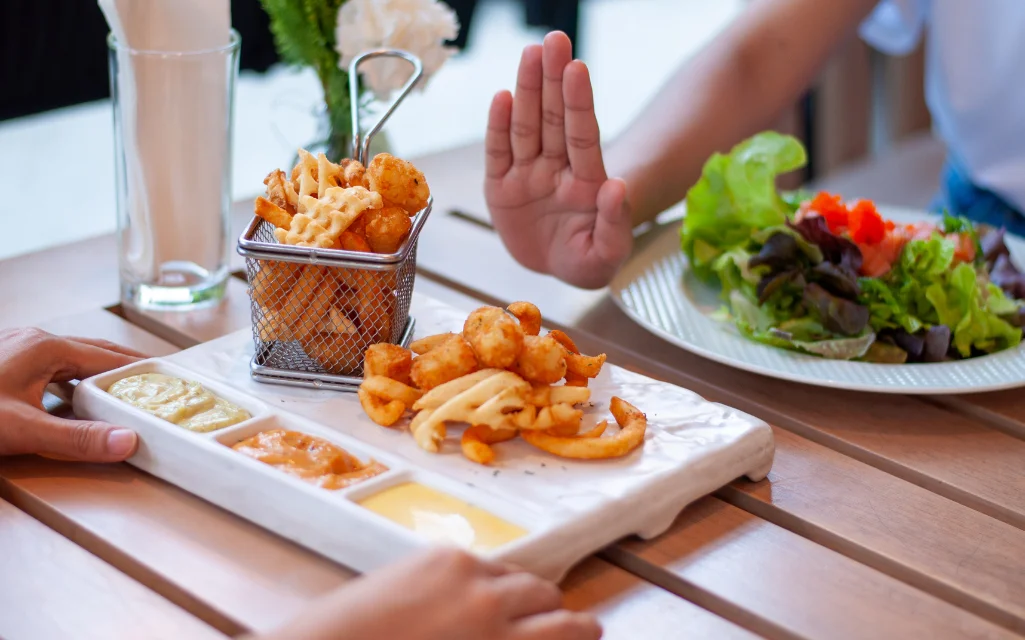Unhealthy food cravings shaped my understanding of eating desires early on.
When I was six, my parents divorced. In the end, my older brother and I moved to a different city to live with our grandma. We spent a lot of time alone and soon realised that food could lift our mood and numb our true emotions.
I began to have insatiable cravings for eating at that point.
Eating would settle me down and make me feel happy. I would feel anxious and uneasy if I tried to ignore my favorite foods since it would trigger my true emotions.
Up until I was a teenager, I was overweight, and I detested it every day. Over the years, I started to worry that giving in to urges was causing me to lose control over my body, weight, and relationship with food.
I studied as much as I could in high school about calories and how eating healthier could aid in weight loss. I ultimately lost a few pounds after putting my knowledge into practice.
And I made a commitment to myself that I would never again be overweight.
I made the decision to become as knowledgeable as I could about nutrition in order to control my weight on my own. I became a nutrition professional for that reason.
I have been able to get over my anxieties of gaining weight again by learning to naturally control my urges. However, focusing solely on the scale’s readings is insufficient, and you can only claim to be in control of your weight once you
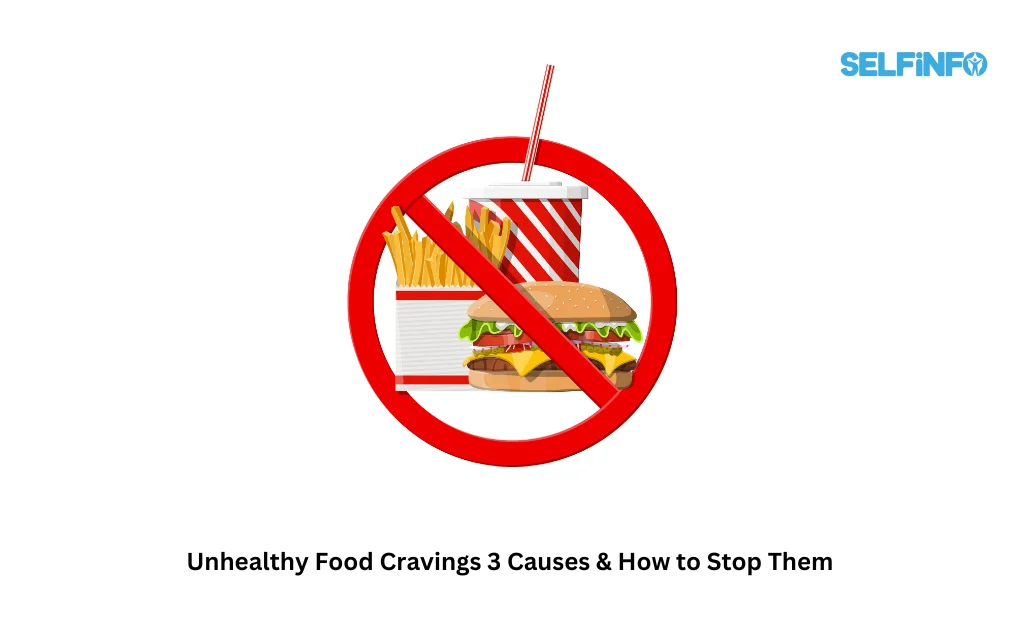
It’s Essential to Understand the “Whys”
Have you ever experienced a food need that was too great to resist?
You could not help but go for it even though you knew you shouldn’t.
Is not this lack of control really annoying?
Like many other aspects of life, managing your weight is lot easier when you know what is happening in your body, why, and what you need to do about it.
In this piece, I will describe the biological mechanisms underlying those insatiable food cravings, as well as provide you with practical advice on how to naturally curb them.
Consider what it would entail for your weight and how it would feel to be in charge of your food urges!
However, before we begin, a warning:
This is an attempt to describe the primary causes of food cravings and practical strategies for overcoming them in an approachable manner without delving too deeply into the science. It is not a scientific paper on food cravings that seeks to cover every facet of the subject.
This post aims to provide you with sufficient knowledge to comprehend the “whys” behind your food cravings as well as useful strategies to help you naturally curb them.
What Triggers Food Cravings?
I want to get off subject here, even though hormonal imbalances and nutritional shortages can also trigger food cravings.
There are two simple ways to deal with these food cravings: either accept them and let them go (for example, during pregnancy or PMS cravings) or, if you detect a nutrition shortage, consult a doctor.
This post should instead concentrate on the unhealthy eating desires you have on a daily basis.
Go ahead and indulge your need for celery sticks! However, if you can not resist eating donuts, chocolate, cheeseburgers, and other such items, you must stop them because they will eventually be harmful to your health.
What, then, causes these cravings for harmful foods that leave you feeling helpless?
Three items:
- Your feelings
- Highly processed food as a result of food chemistry
- Sugar imbalance in your body A lot of writers discuss the emotional aspect of food cravings without taking into account biology and food engineering, yet you have probably noticed that you can still have food cravings without emotions.
I want to close this gap in this piece by highlighting the role that sugar imbalance and food engineering play in causing food cravings.
Let us examine each trigger in greater detail.
Trigger 1: Your emotions
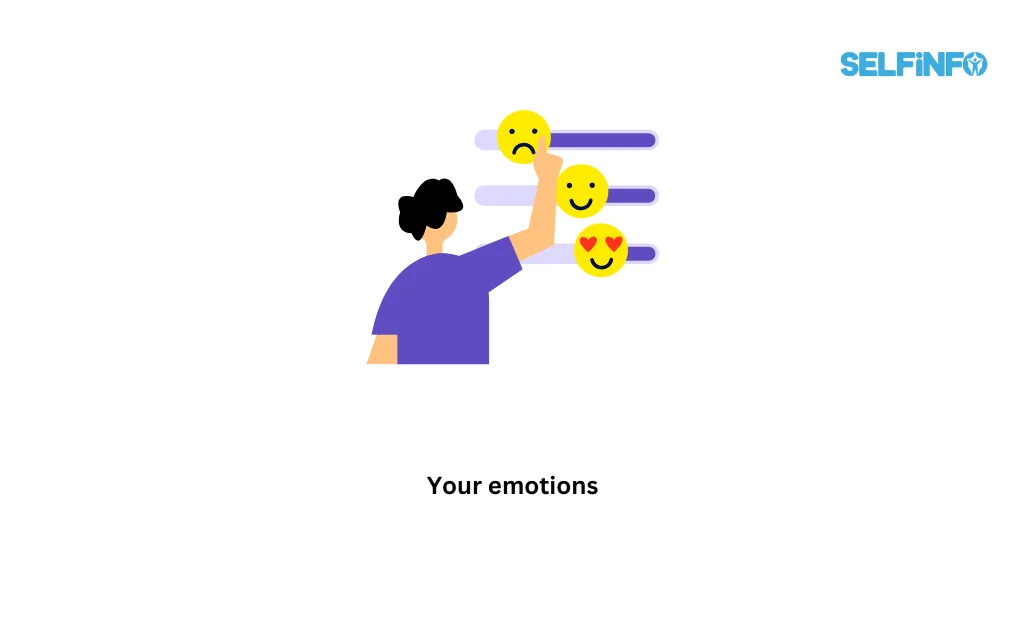
The first thing that comes to mind when you see an apple pie is a pie your mother used to cook. That pie is right there, even though your mom lives far away.
Even when no one is nearby, you still feel lonely. But there is chocolate ice cream in the refrigerator.
You are powerless to stop your employer from acting unrealistically. So, like you always do when you are anxious, you dive right into a bag of chips.
Many emotions are difficult to manage, and eating is a simple method to do so. and it can be explained physiologically.
Your brain contains reward centers that are also in charge of memory and pleasure perception.
Certain foods have the ability to convey signals to those brain centers that “make you feel good.” This will, of course, help you meet your emotional demands at that specific moment, such as lowering your anxiety and desire and calming you down.
The way it works is that the body creates the proper hormones (like cortisol) and other biochemical substances (like the neurotransmitter serotonin) to make you crave the “right” food because the brain recognizes those feelings and knows that particular foods can help alleviate them.
More information regarding food cravings and the biochemistry of food may be found here.
Trigger #2: High-processed food as a product of food engineering.
Have you ever gone grocery shopping to buy “simply bread and milk,” but then you find yourself yearning all this stuff from the vibrant packets that are arranged so beautifully on the shelves?
If all of this highly processed food was good for you, then this would be okay.
However, it isn’t. But that is just the issue—it is delicious.
The food production sector works hard to help people develop a taste for affordable, delicious foods.
Using an engineering approach to processed food, they employ food engineers and collect vast amounts of data.
Food engineering has been around for a while, but it was not until Michael Moss’s most recent research and work—the author of the best essay you will ever read on the subject, The Extraordinary Science of Addictive Junk Food—that its influence over consumers was truly recognized.
Food engineering is also turning you into an addict.
Food engineers put a lot of effort into creating a food’s flavor, which is gauged by how much hunger it will cause.
In light of that notion, producers have been adding sugar to a variety of goods that did not require it, such as bread, crackers, and tomato sauce.
They search for “the bliss point,” or the precise amount of sugar that will make the product incredibly appealing and desirable without overwhelming you with its strong flavor.
You will expect it to taste sweet, and you will want that product again. You will thus develop a preference for foods with higher sugar content and become dissatisfied with those with lower sugar content.
Additionally, food engineering is making you addicted.
You could think I am overstating things, but a number of studies (such as this one and this one, for instance) show that sugar affects our brains in a manner comparable to that of addictive substances.
This explains why it is so difficult to stop eating sugar and carbohydrates once you become addicted.
Trigger #3: Sugar imbalance in your body
Even if you do not become upset or consume a lot of processed food, you may still have food cravings.
In this situation, your body’s sugar imbalance from eating sugar and carbohydrates “the wrong way” will induce your food cravings. (In a moment, I will clarify what I mean by this.)
First, let us examine how your body handles carbohydrates and sugar.
How Your Body Processes Sugar and Carbs
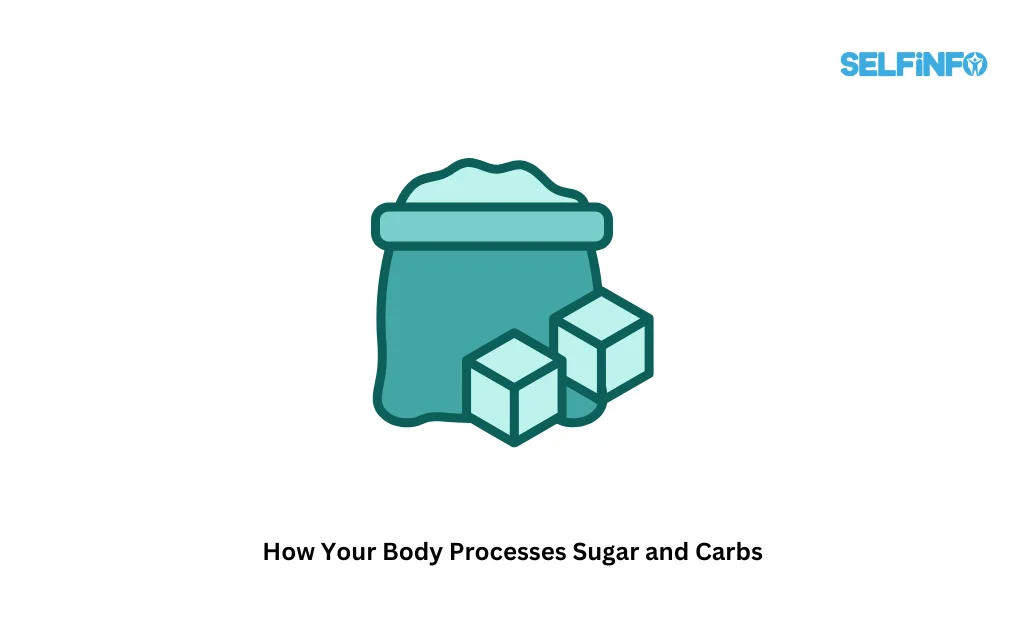
Your brain is the first organ that your biology must tend to. Nothing else will function properly if your brain is malfunctioning.
Glucose is the only energy source your brain can use. Your brain will discover a way to obtain glucose if it cannot find it right away.
The quickest, simplest, and most efficient way for your body to obtain glucose is by causing you to seek foods high in it, such as simple sugars and carbohydrates that readily convert to glucose, by releasing the appropriate hormones.
However, your body must reduce excessive blood sugar levels because they are harmful. In order to eliminate glucose, it causes the pancreas to release insulin.
We refer to this process as sugar metabolism.
The cycle will restart from the beginning when the blood glucose levels are greater since more insulin is released and the glucose will be digested more quickly, leaving no glucose in the system.
What Causes Sugar Imbalance
As you can see, in order to avoid becoming caught up in the vicious cycle of food cravings, your sugar metabolism needs to be in balance.
But if you, to put it simply, eat your sugar and carbohydrates “the wrong way,” this balance is upset.
Eating sugar and carbohydrates “the proper manner” in this context refers to ensuring that the amount, frequency, combination, and caliber of your meals are all suitable.
Quantity: What percentage of carbohydrates and sugar are in your meals?
Your sugar metabolism will go into emergency mode and abruptly eliminate all glucose when you eat a lot of simple sugars (glucose) or carbohydrates (more or less complicated types of sugars that are converted to simple sugars) at the same meal.
Your brain will then trigger a process to release hormones that will make you feel hungry and increase your intake of food in order to replenish your bloodstream with glucose.
Greetings to yet another appetite!
How frequently do you eat carbohydrates and sugar?
A vicious cycle of incessant eating and hunger can be created if you consume foods high in sugar or carbohydrates on a regular basis without allowing your sugar metabolism to rest in between meals.
If you eat a balanced meal and wait three to four hours between meals, your sugar metabolism will have time to recover and function as it should.
Combination: With what are you combining your carbohydrates or sugar?
Glucose will be absorbed more quickly if you only eat sugars or carbohydrates and no fiber, protein, or fat.
Your brain will cause a food craving since you will feel hungry sooner.
Quality: How “healthy” are the carbohydrates and sugars you are consuming?
Simple carbohydrates (such as bread, pasta, and white rice) and sugars convert to glucose more quickly, which speeds up its absorption.
However, glucose is released gradually when you eat complex carbohydrates (such as whole grain bread, brown rice, and pasta).
It implies that eating simple carbohydrates will cause your blood sugar to rise more quickly than eating complex carbohydrates.
You should look at a food’s glycemic index (GI) and glycemic load (GL) numbers to determine how quickly it will break down into glucose and how many carbohydrates it contains.
Consuming carbohydrates with high GI and GL will cause your blood sugar levels to rise quickly, which will speed up your metabolism and cause you to crave more food.
How to Stop Food Cravings Naturally
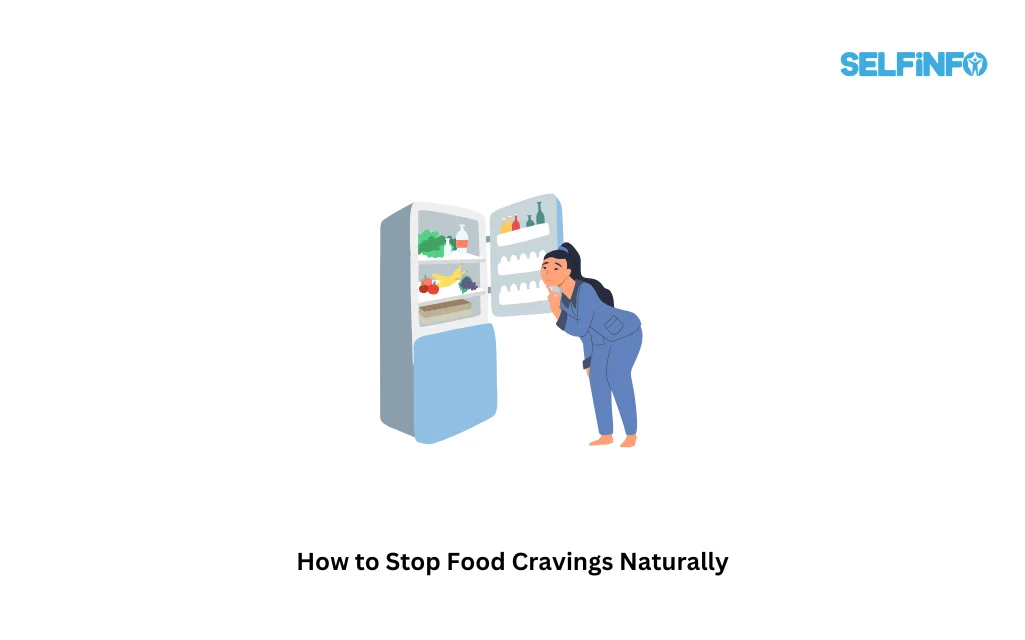
I told you at the start of this essay that I would teach you how to naturally curb food cravings by addressing the root cause rather than the symptoms.
Now that you know what causes food cravings and what keeps them coming back (i.e., you know the cause), it is obvious that you must fight the triggers—on the one hand, deal with your emotions and resist the temptation of the food manufacturing industry, and on the other, maintain the balance of your sugar metabolism.
Let us examine it in detail and determine workable fixes for every trigger.
Cravings Caused by Emotions: Recognize That Food Doesn’t Change Anything
When you think about it, your need for chips, pie, ice cream, or anything else will not alter your perspective on life in the long run.
The particular food that can instantly improve your mood is the one that you crave. However, those “feel better” chemicals will vanish as soon as you finish your meal, returning you to your previous state and likely causing you to have the same desires.
You must understand that sating your eating desires only temporarily helps and that you must end this vicious cycle.
The first step is to realize that food, no matter how tasty, does not alter anything.
Consider what triggers such feelings in you. Get to know yourself so you can anticipate them. Instead of merely aiming for a piece of cake, do your job and battle against them.
Do not believe that there is nothing you can do and give up.
Pregnancy hormones are among the many hormones that are essentially out of your control. However, your emotions cause a lot of others to be released. You will be able to deal with problems much more effectively once you realize that you can take action.
The following useful advice will help you avoid emotional food cravings:
- Look for alternative methods of stress relief. For instance, rather than eating ice cream, instead of hating your boss, lover, and waist, have a soothing massage.
- Engage in relaxation exercises such as yoga or deep breathing.
- Seek strategies to control your feelings, such as talking to a friend, getting a pet, taking a stroll, or going to the movies.
- Consume wholesome food. It will assist you in controlling your hormones.
- If you miss your mother, instead of eating her pie, give her a call or go see her.
Cravings Caused by Food Engineering: Don’t Let Them Trick You
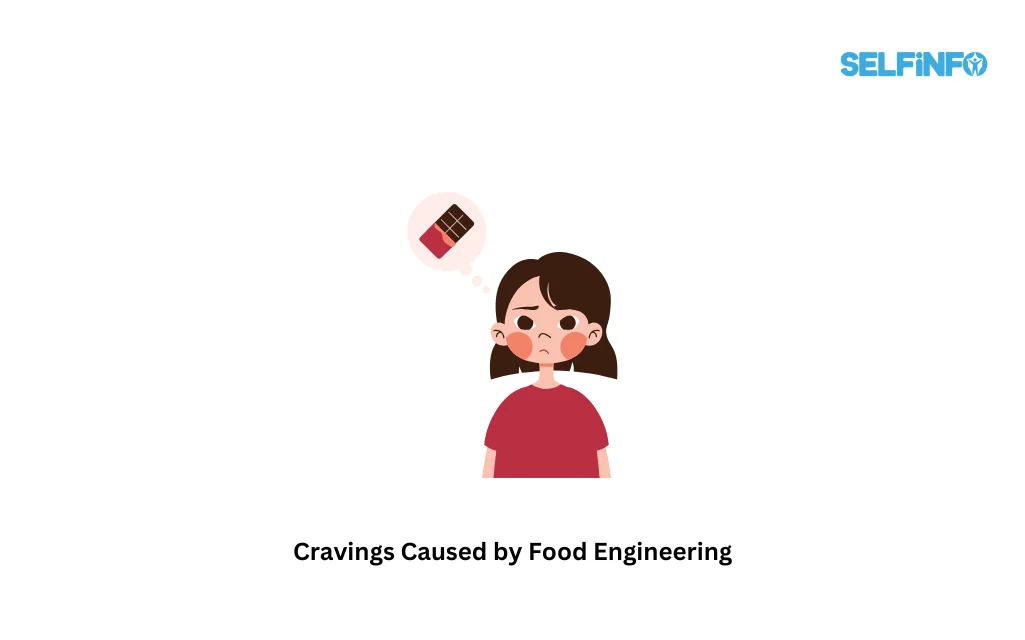
The food business uses a variety of deceptive tactics to get you to eat foods that you will eventually come to crave.
Companies that manufacture food are strong, employ the top food specialists in the industry, and are constantly ahead of the curve in seeing emerging trends and creating innovative marketing strategies.
But you must be more intelligent! Learn how to play their game. Do not let them dictate your eating habits.
Take control of your eating preferences by altering your taste buds to crave healthier foods instead.
Here’s how to stop food cravings caused by engineered food:
- Learn how to recognize sugars from confusing and unfamiliar terms on food labels by reading the labels.
- It is likely that food engineering has already influenced your taste receptors, so you need to switch back to eating healthier
foods. Take things carefully, one modification at a time. If not, success will be more difficult. - The greatest way to know exactly what your meal consists of is to cook it yourself. The majority of added sugar and numerous other unwanted elements that are typically included in highly processed foods should be avoided.
- To avoid the sugar, fat, and salt bombs that are most likely to affect you, find out where they are hidden. Here are a few well-known examples: sesame sticks, crackers, potato chips, and Japanese snacks.
- Be aware that the appealing packaging may entice you to eat unhealthy meals.
- Recognize that the purpose of the advertisements is to deceive you into believing that consuming particular foods will make you feel better about yourself.
- Imagine how food engineers are creating new foods to entice you.
- The deceptive tactics used by food marketers to make their desired dish seem tempting.
- How eating processed food damages your liver and causes belly obesity.
Cravings Caused by Sugar Imbalance: Eat Your Sugar and Carbs “the Right Way”
One of the most important ways to naturally stop food cravings is to maintain control over your blood sugar levels and avoid sugar imbalance in your body.
To accomplish this, you must:
- Consume no more food than your body actually requires.
- Allow adequate time to elapse between meals (frequency).
- Make sure to correctly combine your meals.
Eat only high-quality foods with low glycemic loads and indices.
This is the realistic way to do it.
Quantity: What constitutes a healthy carbohydrate serving size?
Healthy portion amounts for all foods—not just carbohydrates, of course—should be learned and followed. However, it is particularly crucial for foods high in sugar (keep in mind that carbohydrates are a complicated type of sugar).
One cup is a good serving size for carbohydrates, and you should not consume more than that.
How frequently should you eat?
Eat infrequently to avoid forcing your body to constantly process sugar and carbohydrates.
Breakfast, lunch, supper, and a snack in the morning or afternoon, depending on your needs, are the four meals you should have each day. These meals should ideally be spaced out by three to four hours.
For instance, you need a morning snack if you have breakfast early and lunch late. Otherwise, you will overeat at lunch because you will be too hungry.
Combination: How should your meals be appropriately combined?
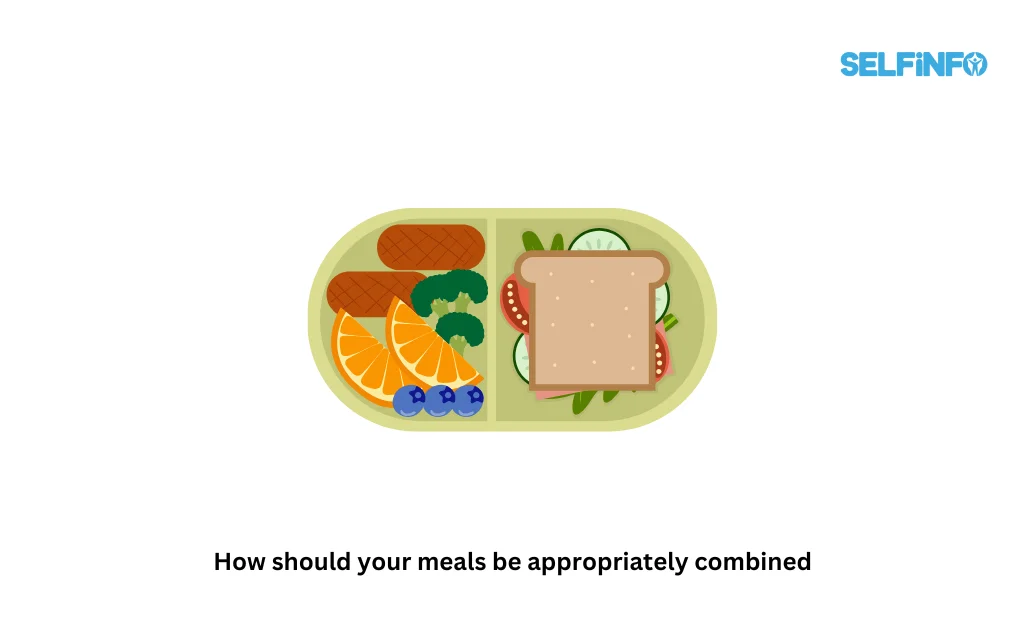
Food cravings are less likely when fiber, protein, and fat slow down and inefficiently absorb sugar.
In actuality, eating the correct mix of meals will make them both nutritious and satisfying, which will benefit you in the two areas mentioned above: frequency (you will feel fuller for longer) and quantity (you will be able to maintain healthy portion sizes).
Eat a healthy amount of fat and protein at every meal; stay away from meals that are solely composed of carbohydrates or sweets.
How do you decide how much to eat?
Avoid foods with high glycemic index and low glycemic load.
These meals will help you control your blood sugar levels and prevent food cravings by releasing glucose more slowly.
In conclusion, here’s how to avoid food cravings brought on by a sugar imbalance in your body:
- Keep your carbohydrate intake within the recommended one-cup meal size.
- Eat four times a day, taking three to four hours off in between.
- Make sure your meals are well-planned and include both protein and fat in addition to carbohydrates.
Select foods with low glycemic index and glycemic load.
Now it is your turn!
Do you think that you can naturally stop needing food? Do you believe it is feasible? What obstacles do you personally face in managing your food cravings? I would adore hearing from you!
